Picture Paris in 1943—its streets hushed by war yet still alive with art and resilience. In that atmosphere of quiet determination, Catherine Fabienne Dorléac came into the world. Born into a family of actors, she grew up surrounded by scripts, stage lights, and the intoxicating magic of performance. When it came time to step into her own career, she chose her mother’s maiden name, Deneuve—a name that would soon become synonymous with French cinematic elegance. From her earliest days, Catherine carried a quiet strength that hinted at the legend she would become.
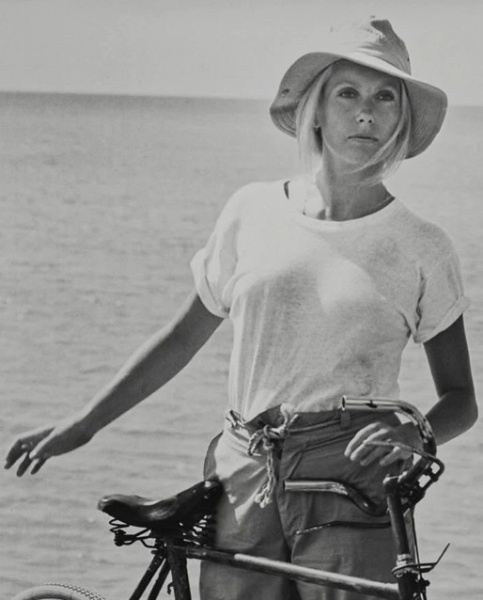
Early Roles and a Breakthrough in Song and Color
Deneuve’s first steps into acting were modest, but her presence on screen was impossible to overlook. At just 13, she appeared in Les Collégiennes (1957), a small role that offered a glimpse of the luminous star to come. Her true breakthrough arrived with The Umbrellas of Cherbourg (1964), a musical where every line was sung and every frame drenched in vibrant color. As Geneviève, she turned a simple love story into pure cinematic poetry, winning the hearts of audiences around the world and introducing her unique blend of grace and emotional depth.
Video : 26 Beautiful Photos of Catherine Deneuve in the 1960s
Fearless in Complexity: Defining Performances of the 1960s
Not content to be typecast, Deneuve quickly sought out roles that demanded more than beauty. Roman Polanski’s Repulsion (1965) revealed her ability to convey psychological unraveling without a word wasted. She followed that with Luis Buñuel’s Belle de Jour (1967), embodying Séverine—a character torn between domestic respectability and hidden desire. These performances cemented her reputation as an actress unafraid of challenging material, blending an icy mystique with a vulnerability that made her unforgettable.
Cinematic Triumphs Across Decades
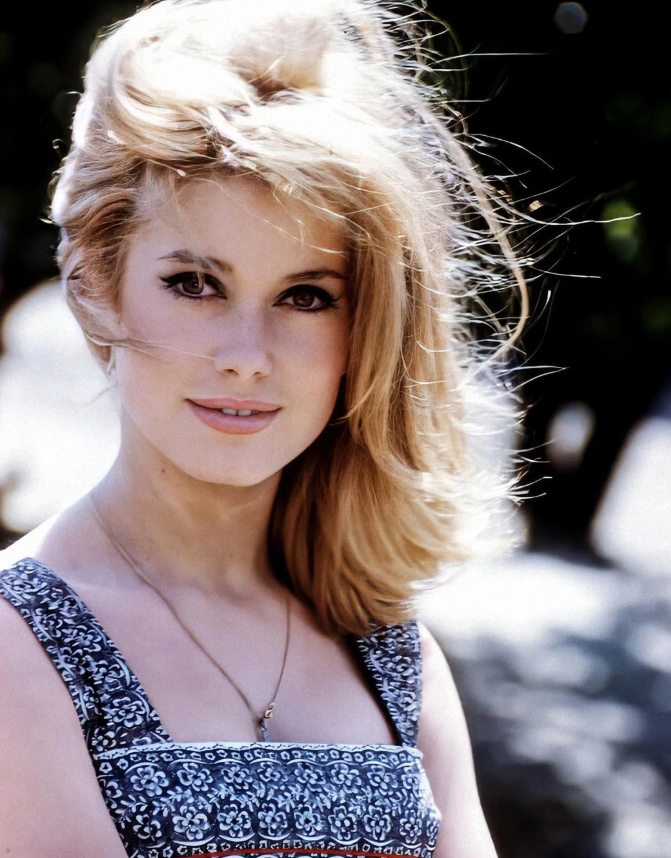
Deneuve’s brilliance wasn’t confined to the 1960s. She continued to shape French cinema in the decades that followed. François Truffaut’s The Last Metro (1980) cast her as a theater owner determined to keep art alive under Nazi occupation—a role that earned her a César Award and critical acclaim. In Indochine (1992), she portrayed a French colonial plantation owner caught in a storm of personal and political upheaval. The performance earned her an Academy Award nomination, proving her talent could captivate global audiences as easily as those at home.
Video : CATHERINE DENEUVE PHOTOS ACTRESS
Even in the new millennium, Deneuve embraced bold projects: Lars von Trier’s Dancer in the Dark (2000), the star-studded musical mystery 8 Women (2002), and numerous French dramas that showcased her enduring creativity. With over 130 films to her name, she has become a bridge between generations of filmmakers and a living emblem of cinematic excellence.
Fashion Icon and Timeless Style
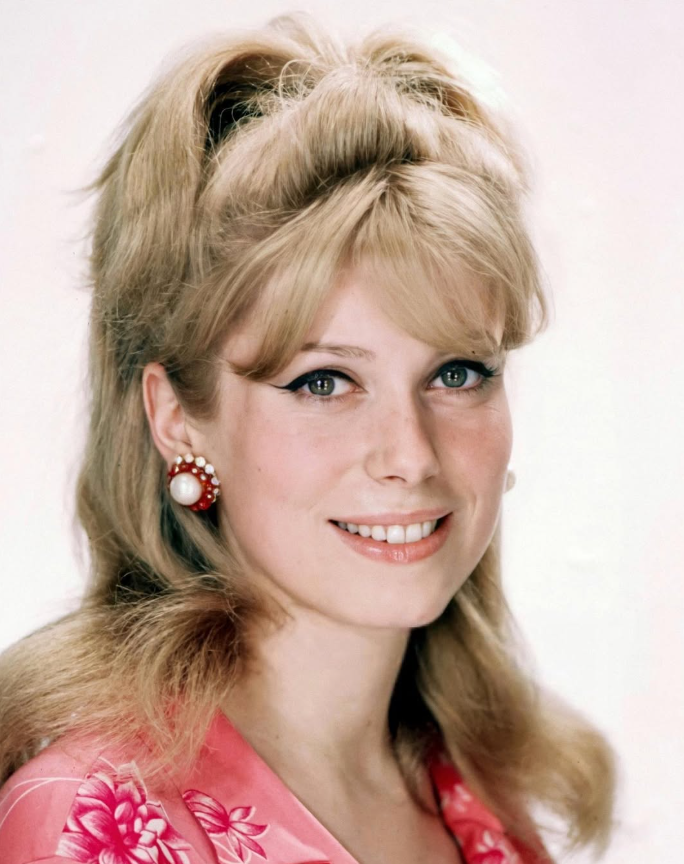
Beyond her film career, Catherine Deneuve became a global symbol of elegance. Yves Saint Laurent found in her the perfect muse—her natural sophistication complemented his designs, and together they helped define the look of an era. Her work with Chanel, particularly the unforgettable 1970s Chanel No. 5 campaign, captured her cool yet luminous beauty and remains a benchmark for classic fashion advertising. Deneuve’s style, equal parts regal and effortless, continues to inspire designers and fashion enthusiasts to this day.
Private Strength Behind the Public Image

While the world admired her poise on screen and on red carpets, Deneuve kept her personal life both intriguing and fiercely private. She shared a son, Christian, with filmmaker Roger Vadim and a daughter, Chiara, with Italian cinema icon Marcello Mastroianni. The tragic loss of her sister, Françoise Dorléac, added a quiet depth to her life and, perhaps, to the emotional resonance of her performances. Even through personal sorrow, she maintained the grace that has long defined her presence both on and off screen.
An Icon Who Continues to Inspire
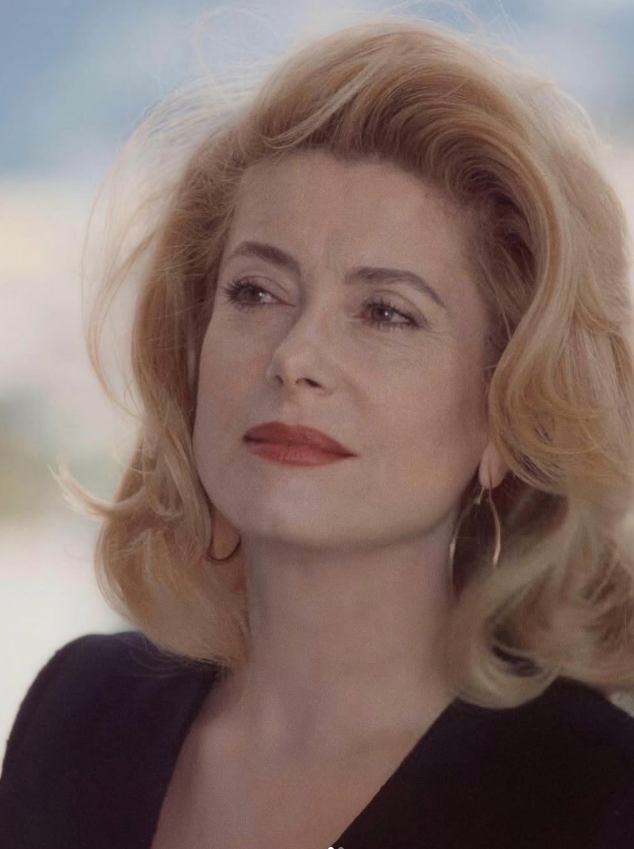
Now in her eighties, Catherine Deneuve remains a beacon of resilience and artistry. After recovering from a health scare in 2019, she returned to film with the same captivating presence that first brought her international acclaim. She mentors younger actors and continues to champion the importance of cinematic culture. Her longevity reminds us that true stardom isn’t about fleeting fame—it’s about sustaining brilliance and authenticity across decades.
Conclusion: The Enduring Brilliance of Catherine Deneuve
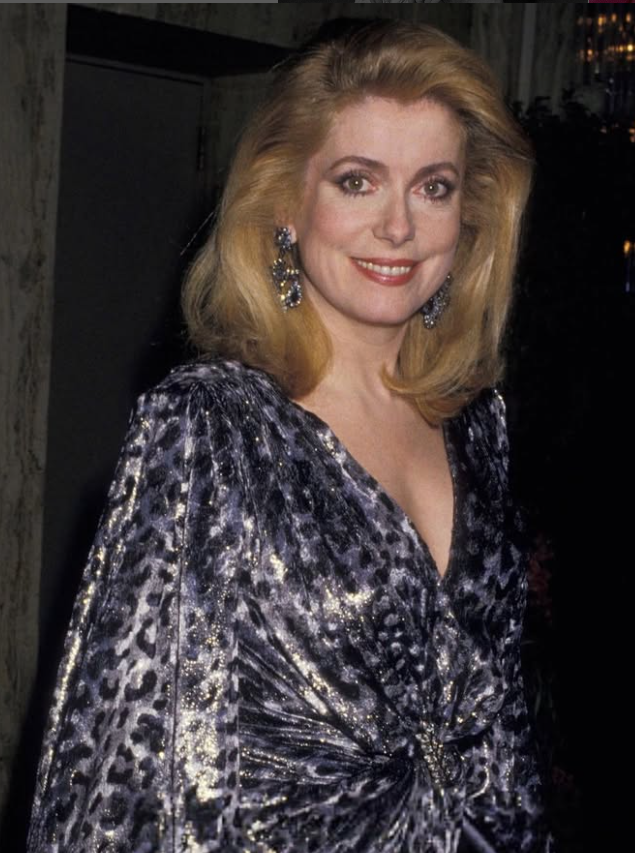
Catherine Deneuve’s journey from wartime Paris to the world’s most celebrated film festivals is more than a career—it’s a testament to timeless artistry and unshakable grace. From The Umbrellas of Cherbourg to Indochine, she has embodied roles that challenge, mesmerize, and inspire. Her collaborations with fashion houses and her guarded yet fascinating personal life have only deepened her mystique. Decades after her debut, Deneuve continues to shape cinema and style, proving that true icons don’t simply belong to the past—they illuminate the present and guide the future.


